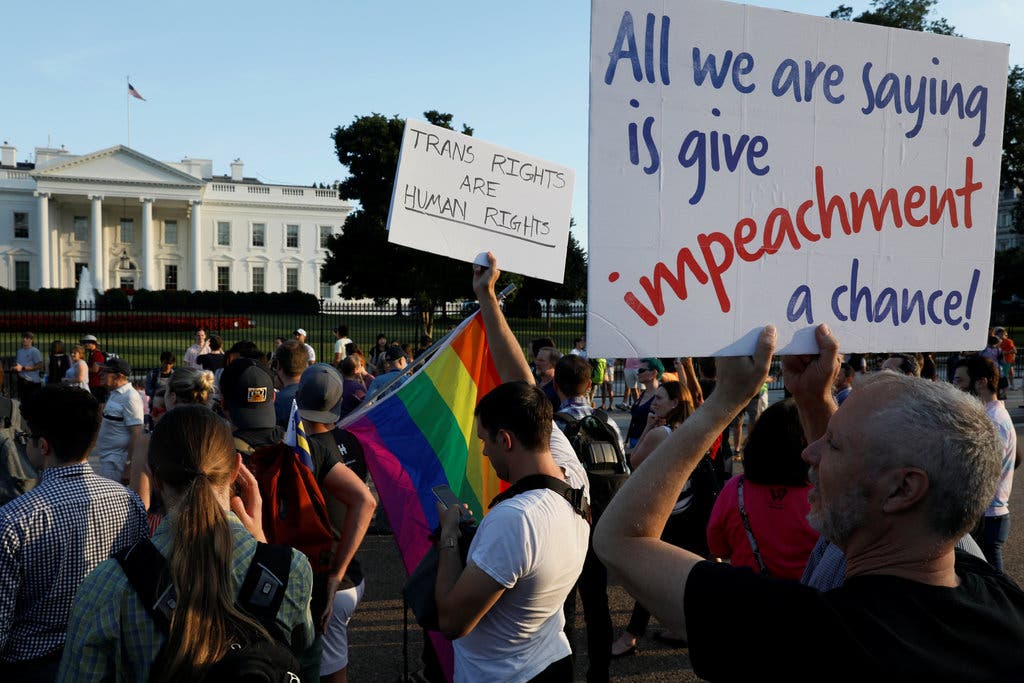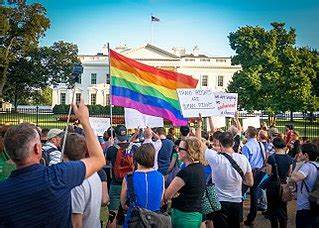Dissecting The Arguments: Trump's Transgender Military Ban

Table of Contents
Arguments in Favor of the Transgender Military Ban
Proponents of the transgender military ban presented various justifications, often focusing on cost, military readiness, and moral objections.
Cost Concerns and Healthcare Expenses
A central argument revolved around the perceived high cost of providing healthcare for transgender service members, including hormone therapy and gender confirmation surgeries. Critics argued this would place an undue burden on military healthcare budgets. However, counterarguments highlight that the overall cost of military healthcare is substantial, and focusing solely on transgender healthcare expenses ignores the bigger picture. Furthermore, studies suggest that investing in inclusive policies can lead to improved retention rates, ultimately saving money in the long run by reducing recruitment and training costs.
- Specific examples of healthcare costs: While exact figures vary, the cost of hormone therapy is relatively modest compared to other medical treatments provided by the military. Gender confirmation surgeries are less frequent and often dependent on individual circumstances.
- Statistics on transgender service member healthcare utilization: Data on healthcare utilization rates by transgender service members is limited, but available studies don't support claims of exorbitant costs compared to the overall military healthcare budget.
Military Readiness and Combat Effectiveness
Some argued that the presence of transgender service members negatively impacts military readiness and unit cohesion. This argument often rests on unsubstantiated claims about potential disruptions to unit morale and operational effectiveness. However, this view fails to acknowledge the successful integration of transgender individuals into armed forces in other countries, such as Canada and the United Kingdom, who have reported no significant negative impacts on military readiness.
- Studies on military performance: Studies from countries with inclusive military policies show no demonstrable decrease in combat effectiveness or unit cohesion due to the presence of transgender service members.
- Examples of successful transgender service members: Numerous accounts exist of transgender individuals serving honorably and effectively in various military roles worldwide.
Religious and Moral Objections
Certain arguments against transgender service members stem from religious or moral beliefs. These objections often challenge the inclusion of transgender individuals based on personal interpretations of religious doctrine or traditional gender roles. However, the principle of non-discrimination and the separation of church and state are vital considerations in this context. The military must adhere to principles of inclusivity and equal opportunity regardless of personal religious beliefs.
- Relevant Supreme Court cases: Several Supreme Court cases have addressed issues related to religious freedom and non-discrimination, underscoring the importance of balancing competing interests.
- Statistics on religious diversity in the military: The U.S. military is comprised of individuals from diverse religious backgrounds, demonstrating the need for inclusive policies that respect all faiths while upholding non-discrimination.
Arguments Against the Transgender Military Ban
Opponents of the transgender military ban argued that the policy is discriminatory and harms military readiness.
Discrimination and Equal Opportunity
The ban was widely condemned as discriminatory, violating principles of equal opportunity and violating the rights of transgender individuals. The policy disproportionately affected a marginalized group and denied them the opportunity to serve their country based solely on their gender identity. Multiple legal challenges to the ban were launched, culminating in court rulings that ultimately deemed the ban unlawful.
- Relevant legal cases: The legal battle surrounding the ban included several lawsuits challenging its constitutionality and discriminatory nature. These cases played a critical role in eventually overturning the policy.
- Statistics on discrimination against transgender individuals: Extensive data illustrates the pervasive discrimination faced by transgender individuals in society, highlighting the discriminatory impact of the military ban.
Impact on Recruitment and Retention
The ban significantly impacted the recruitment and retention of qualified individuals. By excluding transgender individuals, the military lost access to a diverse talent pool and experienced a loss of skilled personnel who might otherwise have served. This negatively affected military readiness and operational capabilities.
- Statistics on recruitment and retention rates: While precise figures are difficult to obtain due to the nature of the ban, evidence suggests a decline in recruitment and retention among individuals who would otherwise have considered serving.
- Expert opinions on the impact of the ban: Military experts and analysts have commented on the negative effects of the ban on recruitment and retention, pointing to the loss of valuable skills and experience.
Mental Health and Well-being
The transgender military ban had a significant negative impact on the mental health and well-being of transgender service members. The ban fostered an environment of stigma and discrimination, leading to increased feelings of isolation, anxiety, and depression, and ultimately, increased risks of suicide and self-harm.
- Statistics on suicide rates among transgender individuals: Studies show significantly higher rates of suicide attempts among transgender individuals compared to the general population, highlighting the importance of inclusive policies to support their mental health.
- Expert opinions on mental health impacts: Mental health professionals have extensively documented the negative mental health consequences of discrimination and marginalization, including the impact of the military ban.
Re-evaluating Trump's Transgender Military Ban
Trump's transgender military ban sparked intense debate, highlighting the complex interplay of cost concerns, military readiness, religious objections, discrimination, recruitment challenges, and mental health impacts. The arguments against the ban ultimately prevailed, underscoring the importance of inclusivity, equal opportunity, and the rights of transgender individuals. The ban's reversal demonstrated a commitment to a more inclusive and equitable military.
Understanding the nuances of Trump's transgender military ban requires careful consideration of all perspectives. Further research into the ongoing impact of this policy and similar discussions surrounding transgender rights in military contexts is crucial to ensuring a more just and inclusive future for all service members.

Featured Posts
-
 7 Year Reunion Two Abc Series Actors Reunite In High Potential Finale
May 10, 2025
7 Year Reunion Two Abc Series Actors Reunite In High Potential Finale
May 10, 2025 -
 Wynne Evans Fights Back Fresh Evidence In Strictly Scandal Case
May 10, 2025
Wynne Evans Fights Back Fresh Evidence In Strictly Scandal Case
May 10, 2025 -
 Lab Owner Pleads Guilty To Covid 19 Test Result Fraud
May 10, 2025
Lab Owner Pleads Guilty To Covid 19 Test Result Fraud
May 10, 2025 -
 Zelenskiy Odin Na 9 Maya Pochemu Nikto Ne Priekhal
May 10, 2025
Zelenskiy Odin Na 9 Maya Pochemu Nikto Ne Priekhal
May 10, 2025 -
 Childrens Hospital Activist Proposes Uterine Transplants For Transgender Women
May 10, 2025
Childrens Hospital Activist Proposes Uterine Transplants For Transgender Women
May 10, 2025
